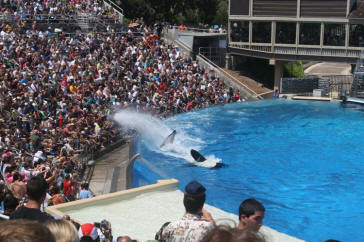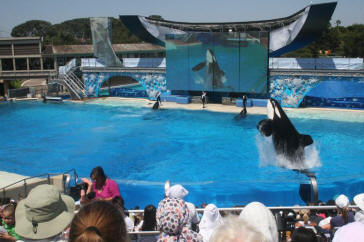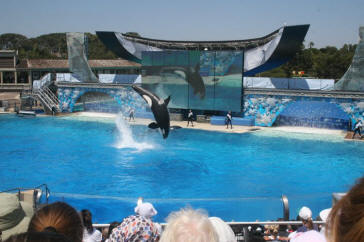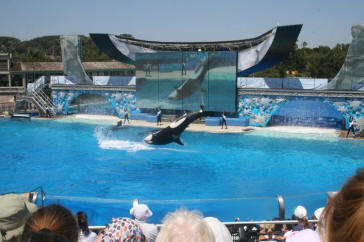The Shamu Show; A Whale Of A Good Time
Did you know? - The killer whale (Orcinus orca), commonly referred to as the orca, and less commonly as the blackfish, is a toothed whale belonging to the oceanic dolphin family. Killer whales are found in all oceans, from the frigid Arctic and Antarctic regions to tropical seas. Killer whales as a species have a diverse diet, although individual populations often specialize in particular types of prey. Some feed exclusively on fish, while others hunt marine mammals such as sea lions, seals, walruses and even large whales. Killer whales are regarded as apex predators, lacking natural predators.

We grabbed a bite at the local Italian place

Sea World does super filling in every little spot with something special
Orca Time
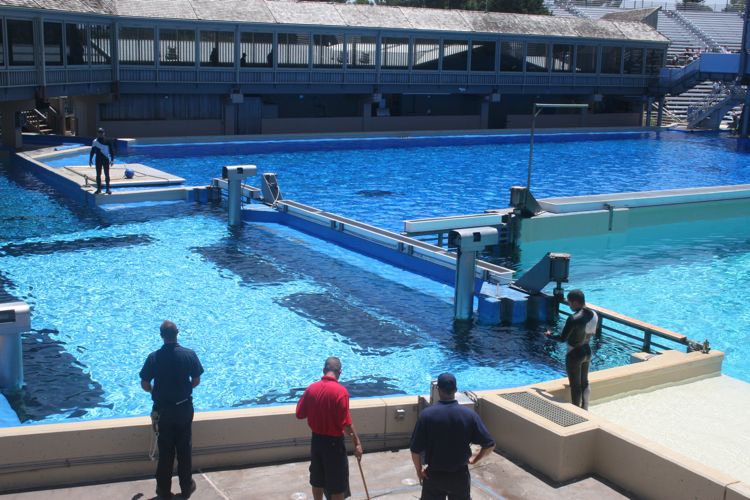
They have their own training pools behind the center stage


Watch out first 20 rows!
Did you know? - Killer whales distinctively bear a black back, white chest and sides, and a white patch above and behind the eye. Calves are born with a yellowish or orange tint, which fades to white. Killer whales have a heavy and robust body (more so than other dolphins)[33] and a large dorsal fin up to 2 meters (6.6 ft) tall. Behind the fin, they have a dark grey "saddle patch" across the back. Antarctic killer whales may have pale grey to nearly white backs.

Super outdoor video system
Did you know? - Female killer whales mature at around age 15. They then have periods of polyestrous cycling with non-cycling periods of between 3 and 16 months. Gestation varies from 15 to 18 months. Mothers calve, with usually a single offspring, about once every 5 years. In resident pods, birth occurs at any time of year, although winter is the most popular. Mortality is extremely high during the first six months of life, when 37–50% of all calves die.

Lazy bones!


Clean out of the water!

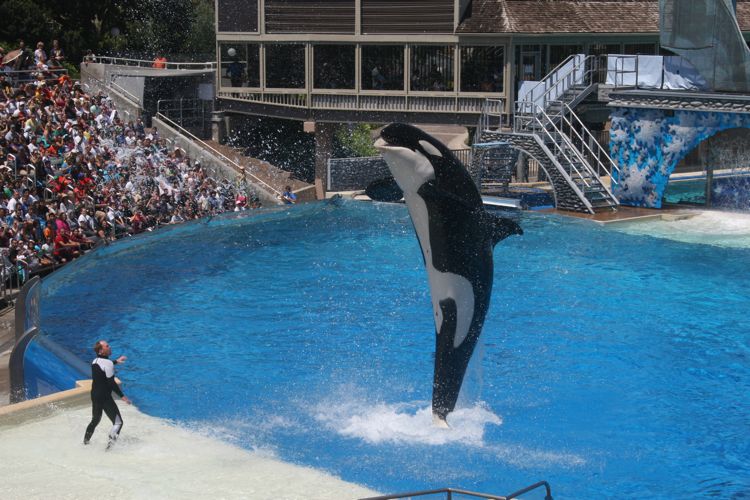
Wow!
Did you know? - Killer whales are found in all oceans and most seas. Due to their enormous range, numbers and density, distributional estimates are difficult to compare, but they clearly prefer higher latitudes and coastal areas over pelagic environments.
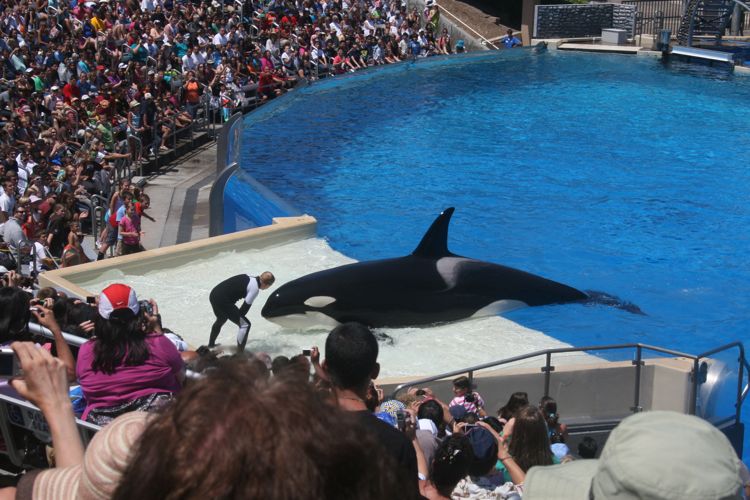
Hello there
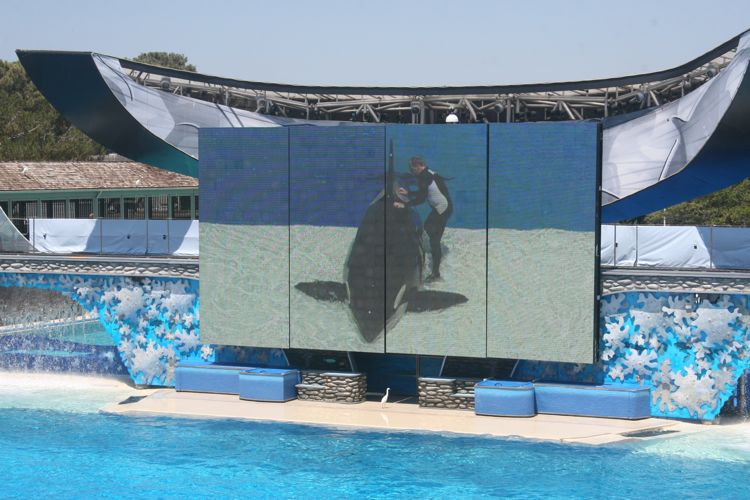
The TV gave everyone a good view!
Did you know? - Killer whales can induce tonic immobility in sharks and rays by holding them upside down, rendering them helpless and incapable of injuring the whale. Some sharks suffocate within about 15 minutes while the whale holds them still, because these sharks need to move to breathe. In one incident filmed near the Farallon Islands, a female killed a 3–4-metre (9.8–13 ft) long great white shark,[70] apparently after swimming with it upside-down in her mouth and inducing tonic immobility in it. She and another pod member ate the shark's liver and allowed the rest of the carcass to sink.

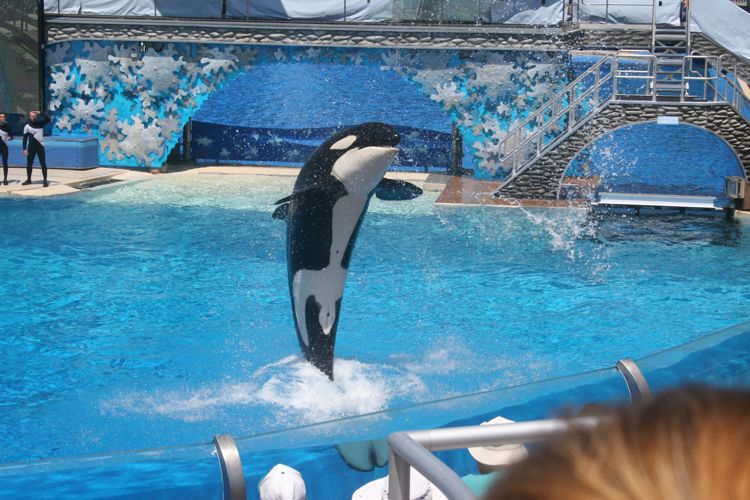
Hope he does NOT decide to jump out!


Load of people here today!
Loads Of Wet People

Blub!

These guys are pretty smart
Did you know? - Killer whales are very sophisticated and effective predators. Twenty-two cetacean species have been recorded as killer whale prey, from examining either stomach contents, scarring on the prey's body, or feeding activity. Groups even attack larger cetaceans such as minke whales, gray whales, and rarely sperm whales or blue whales.
Hunting large whales usually takes several hours. Killer whales generally choose to attack young or weak animals instead. However, a group of five or more may attack a healthy adult. When hunting a young whale, a group chases it and its mother until they wear out. Eventually they separate the pair and surround the calf, preventing it from surfacing to breathe, drowning it. Pods of female sperm whales sometimes protect themselves by forming a protective circle around their calves with their flukes facing outwards, using them to repel the attackers

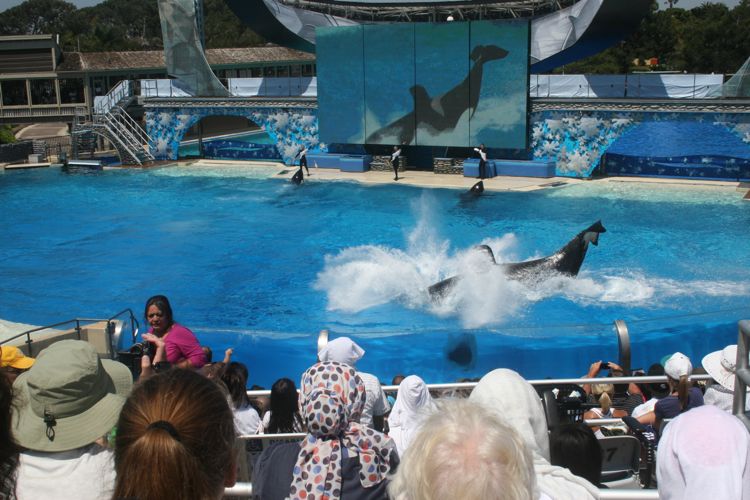

The trainers and trainees

Good Bye





